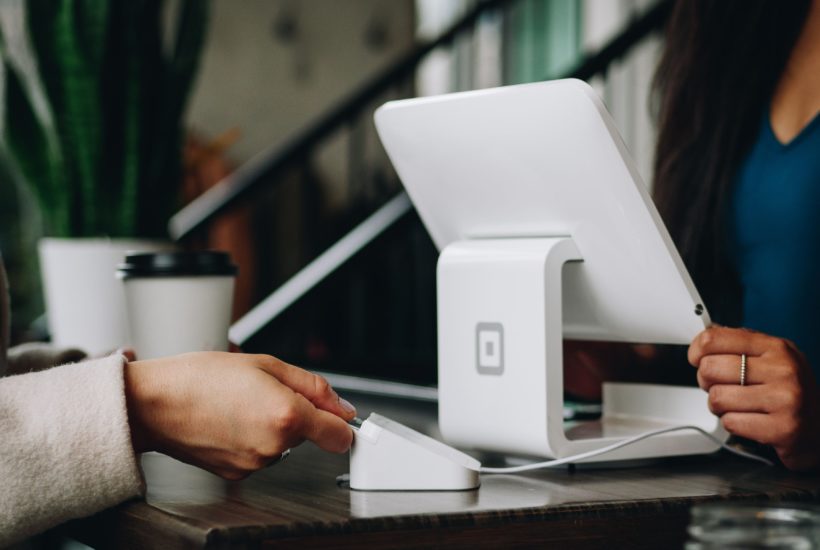Featured
The Fintech sector set to benefit from the economic stimulus package
To send money and help American households during the health crisis, the Fintech sector wants to offer its digital payment services. On Friday, April 3rd, a note stated that more than 60 million cheques should be sent out from mid-April. In the United States, the new payment solutions services have a card to play in helping the government, considering the speed of sending the money.

The companies in the Fintech sector want to take advantage of the current situation and place themselves at the core of financial transactions. In the United States, in these times of health crisis, several departments of the new financial industry have contacted the American government to lend a hand.
Starting this April, financial aid will be distributed to millions of people across the country. However, the colossal processing of data and the risk that some households will not be helped for several months has led the fintech sector to prove indispensable. This is a crucial period and one that is full of interest for mobile payment services.
Download our companion app, Born2Invest, and discover how the fintech sector can benefit from the current situation. Read the most important financial headlines and stay on top of the market.
A “helicopter money” recovery plan
In just two weeks, the health crisis related to the coronavirus outbreak has put more than 10 million Americans out of work. For the first time, the concept of economic recovery called “monetary helicopter” – which appeared in 1969 by a theory of Milton Friedman – seems to be the solution taken into account by Donald Trump.
The president of the U.S confirmed at the end of March that he intends to help households and businesses by offering $1,200 for singles, $2,400 for married couples, and an additional $500 for each dependent child under age 17.
The plan is simple: to restore purchasing power in these times of crisis, so as not to sink businesses. This is an unprecedented recovery plan that bypasses all monetary and fiscal policy intermediaries, but that risks putting the government in the face of numerous constraints.
On Friday, April 3rd, a note stated that more than 60 million cheques should be sent out from mid-April. However, millions of them would not have arrived at their destination before the week of August 17th, five months from now. A catastrophic schedule, but an opportunity for fintech companies to take advantage of it and to propose its alternatives.
“Let Fintech help you”
Never before has the fintech sector experienced such an interesting period as this coronavirus crisis. If in Africa the dematerialization of payments has become part of monetary policy plans, in the United States the new payment solutions services also have a card to play in helping the government. “Let fintech help,” Plaid CEO Zach Perret said on Twitter. The man behind the startup (recently bought by Visa for $5.3 billion), wants the government to work with them so that these payments to households can be dematerialized, and therefore sent faster.
The idea is shared by a significant number of other startups. The speed of sending is a strong argument that the fintech sector wants to take advantage of promoting today, but it is not the only argument put forward. The government will be able to make direct transfers without using cheques, but the reality is not so simple: more than 14 million Americans do not have a bank account, and more than 28 million will have to wait months for their paper cheque because their bank account is not linked to the tax authorities. A window opens to the various players in mobile payment services.
“We have the technology to transmit money to everyone (including those without a bank account). Square and many of our fintech partners can help the US government,” said Jack Dorsey on Twitter. On the social network he co-founded, the CEO of the electronic payment company Square is calling on legislators to work with his service, which will respond to various issues that the government is going to have to deal with, and fall behind.
The Cash App solution
In this case, the big favorites are PayPal and Square. In his various tweets last week, Jack Dorsey mentioned that the two online payment giants could cross their technologies so that the government could use their platforms to make direct payments to Americans. In a report by CNN Business, it is noted that the two companies have already had discussions with the Treasury to promote Cash App and Venmo, the two platforms developed respectively by Square and PayPal.
“Consumers who don’t have a bank account with the IRS – about 28 million Americans – would be forced to receive a paper check in the mail and have to wait several months, whereas if they open a Cash App account, they could receive their money faster,” explained Jason Gardner, CEO of the payment card company Marqeta. A help for the United States, and above all an opportunity for Cash App.
The app has 24 million U.S. customers, and in 2019 it will have an operating profit of $458 million, an increase of 135%. Helping the IRS and the Treasury would mean transactions of more than $250 billion of the $2 trillion U.S. global aid package. A treasury.
__
(Featured image by Patrick Tomasso via Unsplash)
DISCLAIMER: This article was written by a third party contributor and does not reflect the opinion of Born2Invest, its management, staff or its associates. Please review our disclaimer for more information.
This article may include forward-looking statements. These forward-looking statements generally are identified by the words “believe,” “project,” “estimate,” “become,” “plan,” “will,” and similar expressions. These forward-looking statements involve known and unknown risks as well as uncertainties, including those discussed in the following cautionary statements and elsewhere in this article and on this site. Although the Company may believe that its expectations are based on reasonable assumptions, the actual results that the Company may achieve may differ materially from any forward-looking statements, which reflect the opinions of the management of the Company only as of the date hereof. Additionally, please make sure to read these important disclosures.
First published in PRESSECITRON, a third-party contributor translated and adapted the article from the original. In case of discrepancy, the original will prevail.
Although we made reasonable efforts to provide accurate translations, some parts may be incorrect. Born2Invest assumes no responsibility for errors, omissions or ambiguities in the translations provided on this website. Any person or entity relying on translated content does so at their own risk. Born2Invest is not responsible for losses caused by such reliance on the accuracy or reliability of translated information. If you wish to report an error or inaccuracy in the translation, we encourage you to contact us.

-

 Business2 weeks ago
Business2 weeks agoTopRanked.io Weekly Affiliate Digest: What’s Hot in Affiliate Marketing [Hosting.com Affiliates]
-

 Crypto7 days ago
Crypto7 days agoEthereum Pushes AI Integration With ERC-8004 and Vision for Autonomous Agents
-

 Biotech2 weeks ago
Biotech2 weeks agoByBug Turns Insect Larvae into Low-Cost Biofactories for Animal Health
-

 Business2 days ago
Business2 days agoDow Jones Near Record Highs Amid Bullish Momentum and Bearish Long-Term Fears

























